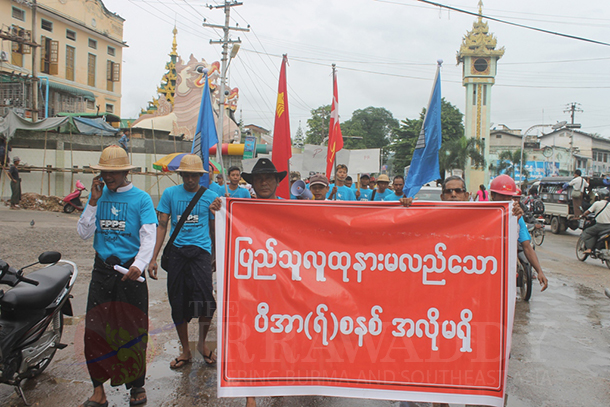Posts Tagged ‘Rakhine Nationalities Development Party’ (1 found)
Move to Proportional Representation a Power Grab by the Military-backed USDP
 The debate over a potential change to Burma’s electoral system, from a First Past the Post System (FPP) to a Proportional Representation System (PR) is gathering momentum, with a new committee formed by the Parliamentary lower house speaker, Shwe Mann, to discuss whether this is appropriate for the country. While the general debate over suitability of differing electoral systems is complex and broad, if seen through the eyes of the context in Burma, there is one clear winner if this change is implemented before the 2015 general election: the military-backed Union Solidarity and Development Party (USDP) which is unsurprisingly supportive of this change.
The debate over a potential change to Burma’s electoral system, from a First Past the Post System (FPP) to a Proportional Representation System (PR) is gathering momentum, with a new committee formed by the Parliamentary lower house speaker, Shwe Mann, to discuss whether this is appropriate for the country. While the general debate over suitability of differing electoral systems is complex and broad, if seen through the eyes of the context in Burma, there is one clear winner if this change is implemented before the 2015 general election: the military-backed Union Solidarity and Development Party (USDP) which is unsurprisingly supportive of this change.
The argument for Burma to change to PR is certainly compelling. Theoretically, it will give smaller political parties, such as the NDF who proposed the motion, more chance of representation in the legislature, while the same goes for smaller ethnic political parties. Yet it is much more complex than this. For constituencies in ethnically concentrated areas, where there is a dominant ethnic political party, for example the Rakhine Nationalities Development Party (RNDP) in Arakan State, FPP is more advantageous for that dominant ethnic political party, as seen in the RNDP’s dominance of the Arakan State legislature. Focusing on winning seats in ethnically concentrated areas might be the only way that ethnic political parties guarantee representation under the first past the post system. Yet under PR, if the total population of a certain ethnic group is under the 1% threshold of votes needed to gain a seat that is typical of PR, then that party will not win any seats at all, even if the ethnic nationality it represents is dominant in certain constituencies.[…]
• • •








 All posts
All posts